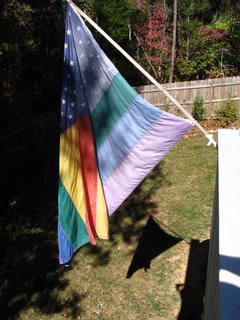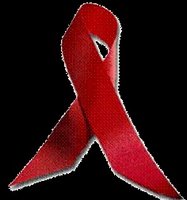Communal Shadows

In the shadow of community we all stand. On my journeys down memory lane, I recall a time when there was a less fractured LGBTQ community here in the US. We shared common goals, we supported each other in the fight for our rights. Now we seem to be splintered into many factions. I have been exploring the idea of the shadow as a result of another project. In doing so, I interviewed a Masters level psychotherapist about the concept of shadow and how it affects us as individuals. I have extrapolated that information about personal shadows to consider the broader issue of our community shadow.
The shadow, a Jungian concept, is that which we dislike about ourselves. It is also further complicated by the fact that we often choose not to see the shadow around us because it is not what we want to recognize about ourselves. Obviously, this particular view will be a reflection of what I, as an individual, dislike about our community. You might not agree with all the things that I would like to see changed, but you probably can find your own list of issues. If you wish to see your shadow as an individual, observe someone in your life whom you really dislike. Your distaste for that person is likely borne from some aspect in yourself for which you feel intense shame or guilt.
Here is what I see in the shadow of the gay community that touches my life. There are A-list people who often set the "agenda" (ha!) of the gay community for all of us and the rest of us who clamor to be heard. There are well-to-do people and people living in poverty. There are gay men who hate women, lesbians who hate men, and straight people who find us all repugnant. There are Log Cabin Republicans and the vast majority of our community which begrudgingly gives them a spot at the table. There are trans-gendered people who are on the fringe of our community because most of us don’t know how to relate to them. There are gym-boys, fatties and chubby-chasers. There are fems and leathermen. There are butches and lipstick lesbians. There are singles and couples, threesomes and lonesomes. There are youth and those of us who have survived to our middle age, although being middle-aged in our community could be equated with invisibility to many. There are metropolitan gay people who look down on anyone who lives outside of cities. There are rural gays whose existence in red states and mainstream America is an experience that is a very different from that of their city-dwelling comrades. There are superficial people who have been misled by marketing campaigns, including men who live with anorexia and the latest fashion fads as their sole focus in life, rather than tending to their souls. There are HIV+ people and those who are either HIV- or think so. There are compassionate people in the fight against HIV and there are those who blame HIV+ people for forcing them to use latex for sex, preventing them from sharing "the intimacy of skin-to-skin contact."
Socially, you either go out to the bars, you chat online, you network through your friends or you struggle to meet others like you in mainstream society by way of the furtive glance and our ever-present yet never completely reliable gaydar. We can meet in coffee shops, or we can participate in scores of individual groups that have their own agenda, but we do not typically have a single unifying GLBT community center where people can go for support, for companionship, or simply to be with others like us.
Worst of all, though, in congruence with all of these differences, we have absolute apathy among many of our community. We live in the "whatever" generation. "Whatever" gave us the mediocrity of George W. Bush. There seem to be so many levels of dichotomy and few areas in the middle where we can all interact. It is no wonder that having a gay "agenda" has been described as an impossibility and a joke that was created by the Religious Right to galvanize them against us. A friend of mine has been known to say laughingly that getting our community to agree on a single agenda would be like trying to herd cats.
On an individual level, I recently encountered a gay man of about my age who entered a gay male chat room to chastise all of those there for fueling the straight community’s argument that we are nothing but sex-obsessed. I felt that he was projecting his own lack of self-acceptance and being judgmental of others to compensate. He accused all in the room without taking into account individual reasons for being there. Just because I am visiting a gay chat room doesn’t mean I am having orgies or even one-on-one sex with anyone in the room. It means that I am chatting with people.
On one level, we are crying out for the rest of America to treat us as equals and to fight for protections in the law. In looking back on the Civil Rights movement of the 1960s, we saw a cohesion of the victims of discrimination with their allies. We saw a somber movement that emphasized the humanity of the individuals in the movement. We saw leaders who took the higher road and who spoke of unity and strength in our diversity. Right now, I see our diversity as the all important goal. We have strayed from the goal of standing together. In the 1960s, we had the Reverend Martin Luther King, Jr. leading the fight for the African-American community. Now, the gay community doesn’t have a single leader, no one who can step up and satisfy all people in our community that he or she deserves the stewardship of our fight for complete freedom and acceptance.
 I don’t like the shadow that I see extending from my community. I know some very lovely, involved, self-assessing and engaged individuals, but I am hoping that this piece will prompt some useful discussion about how we get everyone involved again. I have hope: hope that we can move back toward a unifying theme. We can again find our strength in numbers AND in our diversity.
I don’t like the shadow that I see extending from my community. I know some very lovely, involved, self-assessing and engaged individuals, but I am hoping that this piece will prompt some useful discussion about how we get everyone involved again. I have hope: hope that we can move back toward a unifying theme. We can again find our strength in numbers AND in our diversity.Categories: LGBTQ HIV/AIDS gay+community gay+agenda herding+cats schism diversity








3 Comments:
I've thought about this kind of thing a lot before. I've never heard of the shadow concept but I know what you mean.
-Nel
This is really insightful. As someone who has lived through some of the civil rights movement (don't know exactly how old you are, sorry) and probably the second and third wave feminist movements, have you noticed a change in the importance of labels? Ok, I'm not talking about dying from embarrasement if you show up to high school not wearing Old Navy jeans. It seems like everyone wants to be something that everyone else can describe in a word. This society really, really bugs me because it is so amazingly binary, or at least digital (don't think electronics- think integers or ordinal data or a square wave pattern on an oscilliscope). We identify with two genders, and three sexual orientations. We wear white collars, blue collars or maybe end up a no collar art nerd. The thing is, people need these labels. They defend them. I think maybe they started as heuristics representing valid and complete ideas. In the 60s and 70s people realized- yeah I'm a part of this group, so I will place an X in the appropriate check box. But I will also write a little paragraph in the margin explaining the details that don't quite fit. These days more people are quicker to check the box and forget about the rest- a label has become a complete identity not a short descriptor of one. One of my favorite examples to talk about is gender. Even societies that recognize three genders are still categorizing them. I find it much more useful to talk about gender roles rather than the overall gender of a person- but apparently that is too cumbersome, wholistic, inelegant or maybe just requires too many dedicated neurons on the part of our public policy makers to happen in common practice outside of university square. On a more personally relevant note, there is either gay, hetero or bi. Well, ok, maybe Omnisexual too. But sexuality is fluid and these terms are written-in-stone static labels. What about just being open minded or simply uninterested tonight? Of course the afore mentioned marks exist, and some fit the bill, but how useful is a 50 foot measuring tape that says "Short, long, really long?" In chemistry (well, all sciences) they have the concept of signifficant figures. It seems like society has dothed sig figs to favor trendy categories.
But then there are those socially conscious groups. Look what happened to feminism. First wave feminists were fighting for the right to vote- then the right to vote without their husbands coming into the booth. Their grand daughters the third waves consider it a fundamental right. Compared to the first waves, there is basically no unification in the third waves. There is huge fragmentation from political lesbians to happily married women that LOVE playing housewife.
Obviously not all of their common goals have been accomplished yet- there is still not equal pay for equal work in a lot of places. These people are busy looking beyond the labels and struggling with the complexities of identifying themselves to themselves and others. The cacophony of youth struggling with identity is loud enough to make anyone's ears bleed. Maybe personal dramas have become so much the focus that its backdrop (the social reform movement)has lost meaning in the wake of recent successes. I think it happens to a lot of different groups- the cosmic stew settles. As for unity and leadership: great leaders don't grow on trees and you can't fish them out of the money river. Its up to each of us every day to find a really big stirring rod.
Indeed, I have seen a change in the importance of labels. I hear more and more that today's youth want to be able to do what feels good and do not want to be stuck with any labels. They reject binary or tertiary concepts. It may be a natural progression, I am not sure. The thing that most worries me though is that the loss of an identity (label) may cause the loss of participation in the responsibilities of that label. We have the freedom to do, but all freedom must be defended by responsible behavior.
I did grow up in the civil rights era. My schools were desegregated when I was in 5th grade and most of the white parents in my school district refused to send their kids to school. My parents sent me and I made black friends who were subsequently not allowed to come to my home when I wanted to invite them! It taught me the lesson that you have to go full-tilt for what you believe in or you and others lose out.
Thanks for visiting, Jonathan (and Mel). I hope you enjoyed the time here and I hope that this will serve as a bit of a stirring rod for someone.
Ron
Post a Comment
<< Home